Yes, I know, some of you are still waiting for the conclusion of the Heinlein YA piece—but it may take two more columns; I’m still working on it. Although I don’t want to make it into a scholarly evaluation—or even a comprehensive review of all the YA books, I’d like to convey a sense of not only what it was like to read these books back in The Day, but also why I think—and I do!—that these books can be read, and enjoyed, by today’s youth (as well as adults who somehow missed them while growing up).
So I hope to have at least part of the conclusion done next week. But this week, I’d like to review a recent book by a Canadian writer.
Although it appears to be listed on her website as a YA book, and although the protagonist, Jody, is 14 years old throughout much of the book, I can’t help thinking of The Alphabet Stones as more an adult novel that’s accessible to teenagers. I haven’t read a lot of modern fantasy for a couple of years; I’m not quite sure why. I’ve read a lot of writers like Patrick Rothfuss (The Name of the Wind, etc.), George R.R. Martin’s continuing Song of Ice and Fire saga—and watched the series Game of Thrones, you bet!, Robert Jordan’s (and now Brandon Sanderson’s) Wheel of Time series; I read some very dark fantasy like John Connolly’s Charlie Parker series, and got hooked on the Harry Dresden books by Jim Butcher before they became a TV series, but as for modern—that is, not pseudo-medieval—fantasy, I haven’t read a lot recently.
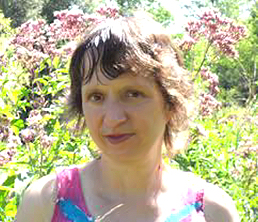
When I did read modern fantasy—which, to admit, has been a while—it was urban fantasy, like Charles de Lint (whose most recent book appears to be Wildings I: Under My Skin , Razorbill Canada, 2012), or my old friend Nina Kiriki Hoffman—(Bram Stoker and Nebula Award winner) whose most recent book appears to be the YA Meeting, Magic Next Door II from Viking. Although there are many, many urban and modern fantasy writers, those two have been my touchstones for a number of years. Thanks to the magic of “teh interwebz,” I have added a new one, and that one is Ursula Pflug. I have been aware of her name as an SF/Fantasy writer for some time—living in Canada, it’s hard not to be—but as far as I know I hadn’t previously read any of her fiction. I hate to brag (well, that’s the polite way to say it, but really—I love to brag), but for a country with only a tenth the number of people as the US, Canada really has some top-notch genre writers—and a very great number of them are women!
I know if I start listing just the local SF/F women of literature, I’ll leave someone out and hurt someone’s feelings, so I won’t. Although Torontonians tend to think of their city (and Eastern Canada) as the centre of Canadian culture, I think that we on the West (or should that be “wet”?) Coast have a pretty big chunk of distaff SF/F writers to our credit. Now I can be sad that we don’t have Ursula, who lives in Ontario. Her most recent book (2013) is called The Alphabet Stones, and it’s modern (not really urban, since much of it takes place in a rural area on or near a commune) fantasy. (It’s available from Amazon; see the link.)
The protagonist, Jody McClure, is fourteen years old throughout much of the book; it’s told in first-person and very lyrically and introspectively. When we first meet her, it’s in flashback—she’s older than 14; we know only that there are four of them: Jody, Alana, Paul and Ethan—and somehow, for some reason, Jody has cut Ethan. And there are stones involved (perhaps the titular “Alphabet Stones”). Almost immediately we come to what appears to be present time, and she’s much older. She’s in the US, somewhere between Vancouver (BC) and San Francisco, though we’re never really told where, and if there are internal clues, I didn’t pick up on them, though I used to be very familiar with the west coast of the US. At one point, Turtle Island is mentioned—and that may be near Eugene, Oregon. At any rate, she is hitchhiking, broke and hungry in the rain; she finds a slip of paper in her pocket with a name and a city of someone who might be able to offer her a meal, a job, someplace to rest.
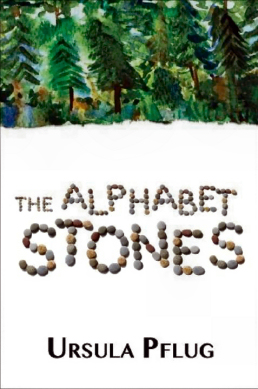
She meets Randy Green, who bartends during the day but reserves his nights for the coffee house cum café cum literary/music gathering place he owns and reads his own poetry in. He offers Jody a night on the floor of The Stolen Child (quoting the Yeats poem of the same name when he does so). Things progress—no, nothing romantic between them at all—and soon Jody is staying at The Stolen Child, making lentil soup, selling day-old cake and, thanks to Randy’s prodding, beginning to write her own story down. So that’s what a lot of the book is: a literary version, written by Jody, of her life so far. The book switches between “present” time (I say that, because there is more than one “present” in the book) and “literary”—i.e., past time. So tenses may get a little scrambled in this review. I hope you’ll forgive any lapses on my part.
She lives/lived on a commune in Eastern Ontario owned by her father, Sam; there are at least four other adults and an unknown number of children also living there. It appears that only Sam really has a job, and life for him is a constant scramble to pay the mortgages on the various hardscrabble properties he owns (he’s somewhat of a land speculator, always buying and selling marginal acreages in the area). His wife (Jody’s and her sister Alana’s mother) Fern is off in Toronto, maybe in some kind of a mental institution—never clear to Jody exactly where she lives, or what was the exact nature of her mental problems. Jody and Alana are home-schooled; most of the people—who may or may not be classical hippie types—keep to themselves on the farm and don’t interact much with the nearby townsfolk, who view the farm people with suspicion and something short of hostility.
In the meantime, a young man (about two years older than Jody’s fourteen) named Ethan, who strikes Jody as somewhat elfin, has come to live on the farm (unlike the communes I used to know in California, this one doesn’t appear to have a name, and is just called “the farm” throughout—unless I missed it). Jody’s sister, who is somewhat older than she, has more or less taken over mothering the communards in lieu of Fern, who occasionally (every year or two) reappears for a week or two and then goes away again. All along the way we get glimpses of the differences between Jody and Alana, Jody and her father Sam, and basically Jody and everyone else—except maybe Ethan; for although Ethan feels brotherly and protective towards the fourteen-year-old girl, she has definite feelings for him. And it hurts her that Ethan appears to be in love with Alana, who is falling for the neighbour boy, Paul.

And in amongst all of this angst and misplaced feelings, we are learning how magical the natural world seems to Jody, who spends much of her time out in the woods and surrounding pastures, something the rest of the group doesn’t do. She eventually finds a disused pasture nearby with the eponymous Alphabet Stones; she lies on a couple and “reads” them with her back, like Braille. They appear to be stones with letters on them; letters that spell out things like “HOUSE” and “COW” and “ONLY THE LAND AND THE CHILDREN ARE IMPORTANT.” Who put the stones there is neither known nor important, but Jody can sense that they have some kind of magical energy, a fact that will become clear to the reader later in the book. There are two worlds, and we have been becoming aware that Jody somehow belongs in both. Jody, however, has reason to question whether any of this is really magical, or if she somehow shares in her mother’s delusions.
Soon another person enters the scene, and his name is Snake. He’s possibly a really tall “little person” (fairy or magical being); he claims to be Jody’s brother. He brings news about her family and herself; Sam isn’t really her father, though Fern is her mother. I’m quite reluctant to go a lot farther in description of what happens and what relationship everyone is to everyone else. The reason is that it is all so beautifully described that I’m loath to deprive any reader the joy of reading all of this, so maybe I’ll just go into generalities from here on in, as you know I don’t do spoilers. The book manages to make magic both real and unreal both to the reader and to the participants. Do we actually see any magic? Yes and no; there are certain things that don’t belong to the “natural” world that one can describe as “magical,” but certainly not magical in the ordinary sense. As one character says, “over there” (in Faery, one presumes) they can’t just wave a wand and give us what we want. In fact, it’s unclear whether they even care what we want.
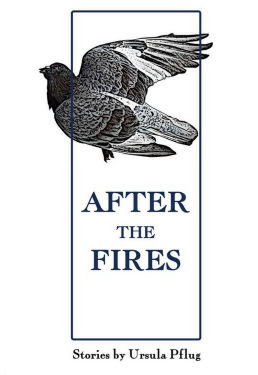
It has been a long while since a writer has kept me on this kind of knife edge: are there really two worlds? Even though we can see all kinds of things clearly through Jody’s eyes—and the book is a voyage of self-discovery as well as a sort of travelogue of mostly one place—we’re as uncertain as Jody is whether any of this is “real” in the usual sense. A lot of it deals with alienation—Jody’s as well as Ethan’s—which, in a very real sense, is a big problem for youth; often we don’t feel like we belong anywhere when we’re growing up. Like Jody, we sometimes don’t feel as if we’re part of our own family; they can appear to be strangers and we the halfling; as if we have been stolen away by fairies and replaced by some sort of golem. Are we the golem or the halfling? These questions are a part of the confusion Jody often feels, exacerbated by her feelings for Ethan, and the realization that Ethan feels for her sister what Jody feels for him. (It sounds more soap-opera-ish than it is.)
Anyway, I don’t want to quote large chunks of the book; I liked the writing so much I’d rather let the reader discover it for him/herself. The Amazon link is in the book’s title above. Ursula is the author of a previous novel, Green Music, and a collection of short stories called After The Fires, as well as the upcoming book Motion Sickness, which according to Amazon has not yet been released. You can bet I’ll be looking for this book when it’s out. (Amazon links are in both book titles above, by the way.) Short version: Alphabet Stones is highly recommended; I enjoyed it a lot. If you’re into modern fantasy, you could do worse, but not a whole lot better!
Please register here (it doesn’t cost anything) unless you already have, and comment on this week’s entry. Or you can comment on my Facebook page or in the several FB groups where I publish a link. I like to read your comments—whether I agree with you or not! Feel free to disagree; my opinion is, as always, my own, and doesn’t necessarily reflect the views of Amazing Stories or its owners. I might argue with you, however…. See you next week!
(Editor’s Note: Steve Fahnestalk has been nominated for the Canadian Aurora Award for Fan Writer this year.)
Steve has been an active fan since the 1970s, when he founded the Palouse Empire Science Fiction Association and the more-or-less late MosCon in Pullman, WA and Moscow, ID, though he started reading SF/F in the early-to-mid 1950s, when he was just a sprat. He moved to Canada in 1985 and quickly became involved with Canadian cons, including ConText (’89 and ’81) and VCON. He’s published a couple of books and a number of short stories, and has collaborated with his two-time Aurora-winning wife Lynne Taylor Fahnestalk on a number of art projects. As of this writing he’s the proofreader for R. Graeme Cameron’s Polar Borealis and Polar Starlight publications. He’s been writing for Amazing Stories off and on since the early 1980s. His column can be found on Amazing Stories most Fridays.

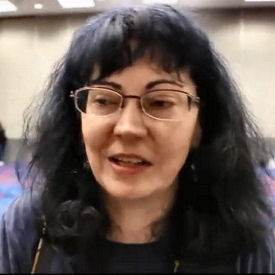


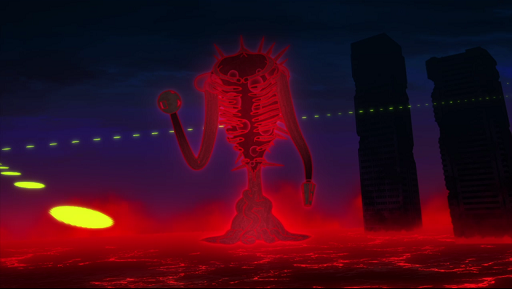
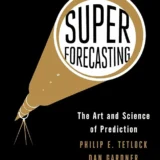
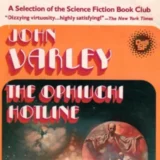


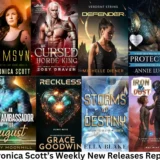
1 Comment